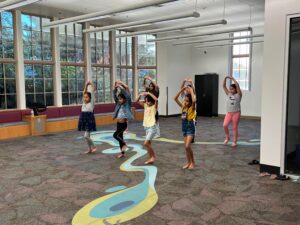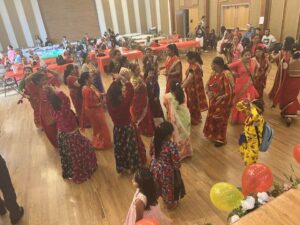
Who are Bhutanese Community? – A Brief Background
Bhutan is a small Himalayan Kingdom located at North-East of India and South of China. It is ruled by absolute hereditary king since 1905. The Bhutanese Community refers to the people from Bhutan, also called Lhotsampas or Southern Bhutanese. In 17th century the Dharma Raja of Bhutan requested the ruler of Nepal to send skilled artisans to Bhutan to build infrastructures, they later resettled in the southern belt of Bhutan and were granted citizenship. These Nepali speaking people contributed a lot to the infrastructure development of Bhutan. In the National Census of 1978, the Royal Government of Bhutan imposed policy that the Lhotsampas were asked to produce the Certificate of Origin (CO) that if the citizens were unable to produce CO of 1950, were categorized as non-nationals and were asked to leave the country. During the reign of fourth king of Bhutan, Jigme Singye Wangchuck, in the 1987 national census, the Government implemented “One Nation, One People” ethnic cleansing policy resulted into mass violation of fundamental rights, banned Nepali curriculum, burnt Nepali textbooks, asked to speak only National Language “Dzongkha” that culminated into peaceful demonstration for restoring fundamental rights and then democracy. The outcome was mass eviction for over 115,000 Lhotsampas who were victims of racism and sought asylum in Eastern Nepal as refugees and stayed for twenty-two years with hopes for repatriation with dignity.
Having no amicable solutions, the Lhotsampas chose the options for third country resettlement. 2,000 people have resettled to Utah since 2007. A nonprofit charitable entity called Bhutanese Community in Utah was formed in 2009 to serve 80% of dependent families, and over 400 youth through case management, referrals, and workshops. Due to many unmet, underserved, and emerging needs for the Bhutanese community, captured the attention of social service-oriented leaders. A newly emerged nonprofit organization called Community Building Services (CBS) was formed in 2020 to offer high quality program services under the versatile leaderships of Tek Neopany, MSW, MA and Chandra Sapkota, BA who has served the same community since 1990.
Within the short range of time, CBS was able to make tremendous progress in operating its high-quality need-based programs and services to earn credibility from various corners. CBS offers programs specialized in life skills, social services, language and cultural development. Although much has been accomplished, lack of sufficient funding threatens emerging needs to not be addressed. Currently, the short-term case management, referrals, parenting and access to technology, programs and services are prevailing. Today, CBS is working with dozens of partners to close those gaps. The ultimate goal is to integrate, tend self-reliance and preserve cultural identity.
The Bhutanese community is a cultural-based community which celebrates New Year in mid-April, the Women’s Festival “Teej” in late August/early September, and Dashain and Tihar, other major festivals that the Hindu community celebrate in October and November according to Nepali Calendar.

 A dance class program was started in 2016 under the initiative of Tek. The participants perform dances at World Refugee Day Celebration, the Living Tradition Festival and occasionally at the Craft Lake City DIY Festivals. The dance class is operated at Community Opportunity Center (inside Columbus Center).
A dance class program was started in 2016 under the initiative of Tek. The participants perform dances at World Refugee Day Celebration, the Living Tradition Festival and occasionally at the Craft Lake City DIY Festivals. The dance class is operated at Community Opportunity Center (inside Columbus Center).
New Year
For Nepalese and Bhutanese folks, New Year is the first day of the month Baisakh. On western calendar, it usually falls on April 15 in the year of 2023. The new year is marked by the day in which the sun ends its Pisces indulgence and begins its Aries indulgence. The belief is that when this happens, the older year of sambat ends, and the new year begins. Therefore, it is the day for every person to evaluate the successes and failures of the work done in the past year, and to create goals and plans based on the lessons learned in order to achieve success.
Bikram Sambat – Nepali Calendar
The Bikram Sambat (BS) Nepali Calendar is 56 years and eight months ahead of the western calendar. While there are 12 months, the number of days per month changes each year with a maximum of 32 days. The calendar does not have a leap year. It is a solar calendar and is based on ancient traditions. King Vikramaditya of Ujjain gave the name and starting date for a new year.
New Year Celebration
Just as last year, CBS will celebrate New Year to welcome 2080 BS on Saturday, April 15, 2023 from 2:00pm – 4:30pm at 2530 S 400 E Columbus Center, Auditorium. This event is free and open to all. Any individuals, groups or communities are welcome to present a performance. The goal is to learn cultural aspects from each other and enrich diversity. The activities include dance, drama, and singing performances are welcome. We also note and appreciate the volunteers, our partners and anyone who has contributed to our events and overall mission.
Website: www.my-cbs.org
